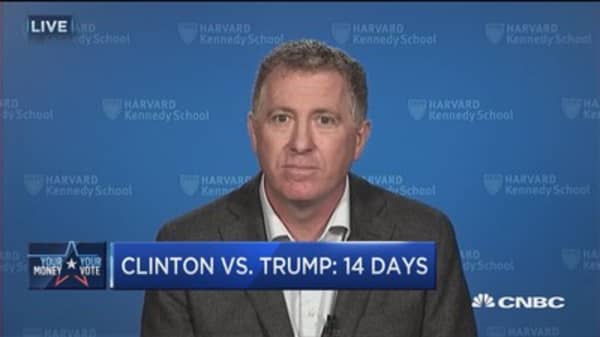There's something funny about all the focus on whether Donald Trump will concede the election results gracefully. There's something odd about all the speculation on whether Trump will drag Congressional Republican candidates down with him. And there's something off about people wondering just how large Hillary Clinton's landslide victory will be.
Yes, most of the polls say Trump is behind nationally and in the key battleground states. Yes, those news event betting sites are all setting odds at about 80 percent for a Clinton victory. And polls and odds aside, you could argue a politically incorrect outsider like Trump never really had a chance anyway. But the thing is, he hasn't lost yet.
This column is not meant to make some kind of case for Trump's chances. But it's a simple statement of fact that in almost every election, there is some variety in poll results. This one is no different as the L.A. Times/USC poll calls it a tie, and Rasmussen Reports and the historically most accurate Investors Business Daily Poll both say it's just a one point race. Two other polls, Reuters/Ipsos and Economist/YouGov have it as a four-point lead for Clinton. This is hardly landslide or even comfortably certain territory. But maybe it's not the actual, "who are you voting for?" polls we should be looking at now.
First off, people often do vote or tip off their vote with their feet. And Trump rallies are still jam-packed, compared not only to Clinton's rallies, but the usual attendance we see at political rallies even this close to Election Day. It's that kind of consistent enthusiastic turnout that has Stony Brook University Professor Helmut Norpoth convinced that Trump will win the election based on a model he constructed that's mapped out every election result since 1912 correctly, (except for 1960).
Most of the pundits, including University of Virginia elections expert Larry Sabato, still believe turnout for Clinton will still be strong enough for her to win. But in every election in the past where negative campaigning has been dominant, turnout is depressed. And when was the last time a presidential election was as nasty and negative as this one?




